Please tell us something about yourself and your organization and what is the mission of the Jungle Doctor
My name is Chloe, and I am a wildlife veterinarian from Australia. I am fortunate enough to work all over the world, with a range of different animals, in a range of different capacities, and working on the frontline of conservation. It is something that I have been passionate about for a really long time.
In terms of what my mission is, my mission is to inspire others to care about the natural world, regardless of background, education, or profession. I believe that it is something that should be important to all of us because it ultimately does affect all of us.
Survival of the natural world is intricately linked to our own survival. I take a lot of pleasure out of sharing the work of conservationists, including my own work, and informing people how they can get involved and what changes they can make in their own lives, and just highlighting some of the biggest issues facing the natural world today, such as extinctions taking place at a 1000 times the natural rate, poaching escalating, the ocean drowning in plastic. These are all things that I am really passionate about.
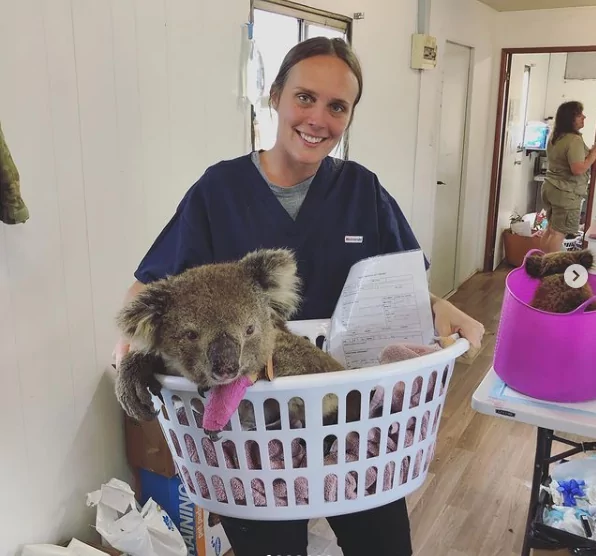
Having had the background that I had (and I am pretty sure it’s part of the next question :)) But I grew up on a really beautiful little island off the coast of Australia, which is actually a World Heritage Site.
It is pristine and untouched, just filled with a natural jungle, wild animals, and it is absolutely just breathtaking. I was exposed to nature, and at a very young age, I knew that I wanted to stay there and that protecting this sort of environment and these habitats is something that made me the most excited in life, and that is what I have chosen to pursue.
That is a really nice story! What was your biggest challenge so far with your work as a veterinarian and within your organization?
I would say that my biggest challenge so far was seeing some harrowing cases and incidents, and then also seeing the harm that mankind is able to inflict on sentient beings such as wild animals and the natural world – it is quite upsetting!
That is probably the biggest challenge that I have faced with these man-made problems (more often than not) every day during my work. Probably the one that sticks in my mind the most, even though I said man-made, but in this case, it was not, were the bushfires we had here in Australia six months ago. It already feels like six years ago by now!
I had to treat a huge amount of animals that came through the door. We had to set up an emergency hospital on the fire grounds; we had to work there and treat hundreds of Koalas, Kangaroos, and Wallabies.
These were all harrowing and heartbreaking situations to see in how much pain these animals were in and how much they were suffering. The ones that could be saved, we did all we could, and many of them also had to be euthanized; they were way too badly burnt.
That was pretty horrific, and it is still very fresh in my mind.
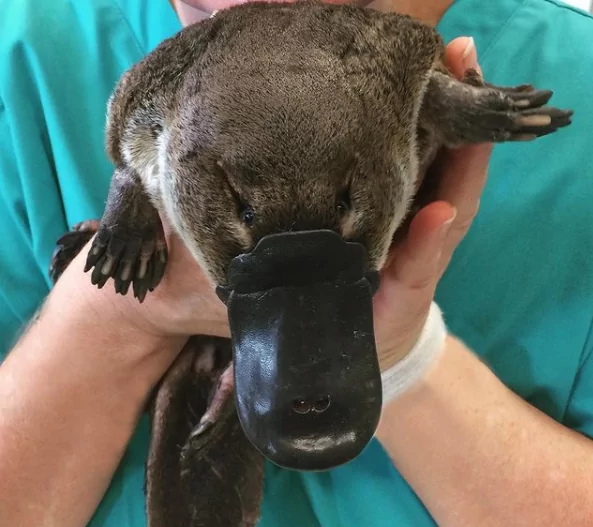
That was a really bad situation! Our next question is, why did you decide to become a veterinary doctor, and why a jungle doctor in particular?
The reason for becoming a veterinarian is twofold. I grew up as an only child, and I had this cat called Pip, who was pretty much my best friend. I had a very strong bond with animals from a really young age, and I never really saw myself working with cats and dogs, which is ironic, seeing how special Pip was to me.
But I think the second part that made me become a vet was due to the fact that I spent my childhood in a range of different wild and exciting places such as Lord Howe Island, where I spent some time. So just spending most of my time in nature, swimming in the lagoon, alongside the Reef Sharks and Stingrays, and climbing the mountain to the Cloud Forest, being fascinated with the natural world.
I knew that I wanted to work with animals, and I knew that I wanted to work outside, and I knew that wildlife really inspired and excited me. So I sort of put them together in my head and thought, right, I was going to be a vet for wild animals, and that is what I am going to do working outside in the field.
It is definitely not as easy as that! There are a lot of bumps in the road, and it is a bit of an unusual career path. I only really figured it out when I was already pretty deep into Vet School, which is fine as I really loved Vet School, but there are many other ways to work in nature as well as wildlife.
There are so many capacities that you can do that in. I am really happy that I am doing that as a vet because I really love doing it. I was lucky, but when I was younger, I did not realize that there are so many ways that you can be a conservationist. For you to work with animals, it doesn’t mean that you have to be a vet.
I love being a vet, so don’t get me wrong 🙂 And I am really very happy doing it!
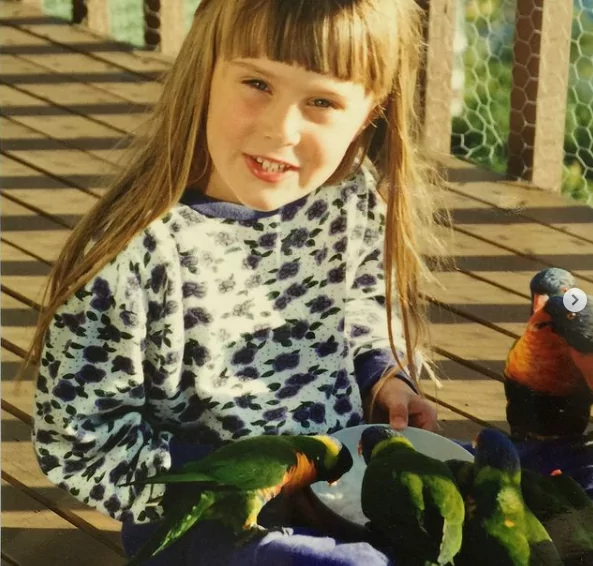
What about your studies? Where did you study, and can you tell us something about your experiences as a student? That must’ve been interesting!
I had a great time as a student. I studied in Melbourne, down at the bottom of Australia. I chose to go there because, at the time (which feels like a 100 years ago now), they had a different program than the rest of the universities in Australia had.
They had the Doctorate of Veterinary Medicine, which from my perspective, was just a little bit easier to travel and work overseas with. That is why I moved to Melbourne, and I am very grateful that I did.
I have some family there, and I had a really great time at university. And I made some of the best friends that I have ever had, and they remain my best friends. The girl that I met on the first day of Vet School ended up being my Maid of Honor at my wedding two years ago, so she is my best friend.
We had a really fun time, and I was so inspired by what we were learning. It was really challenging; it was extremely stressful at some points during exams when you have 12-15 exams to do in the space of a couple of weeks.
The pressure built and built throughout it, but I really enjoyed it, and by the time we got to our final year, which is the clinical year, you get to choose or have more power over where you spend your time learning.
I decided in that final year to spend most of it at zoos and wildlife organizations around the place, and I just realized that I had gone through a bit of a challenging time at the Vet School, which is the same for everyone), but we all came out having a clear picture of what is possible and where they wanted to go.
So it was in my final year, where everything started coming together for us and for me.
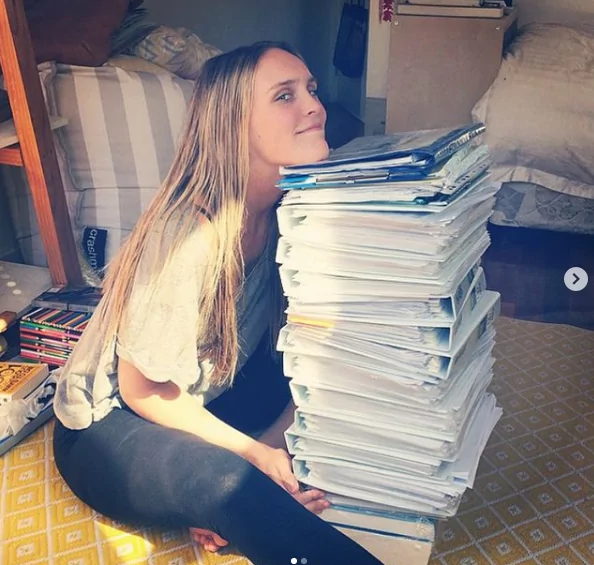
What are your most interesting stories from your work experience? It can be funny, or sad, or insightful.
I get asked this question quite a lot, and I feel like I always have a different answer. There are just so many to pick from. But I think the most memorable, or the most exciting that I have been involved in, is always catching a wild giraffe.
Essentially, if you are in Africa in the field, and you want to move an animal, like a giraffe or an elephant, from one park to another park, or if they have broken into a bad area, or if they find themselves in an area with a lot of poaching activity, it might be safest to move them.
So, whenever you have a giraffe that needs moving for whatever reason, or if they are caught in a snare, it is just such a huge operation, because they are enormous animals, they run extremely quickly, they have very long legs that are amazing, and it looks like they are running in slow motion.
But when you get up close to them, you realize there is nothing slow about them as they are incredibly fast animals and incredibly tall animals. So you would have a helicopter team that darts them, you have the ground team that follows the animal in a truck, racing through the bush, and you are holding onto the back with your drugs, etc.
It is quite a special experience as well because giraffes are one of the only animals that you purposely give an overdose to because you don’t want them to spend an extended period in the excitement phase of sedation or anesthesia.
You want them to potentially come to the ground as soon as possible because they can run into all sorts of trouble with myopathy, and they will overexert themselves and just keep running. So, with giraffes, it is quite important that you give them an overdose in the dart.
That means that you have to have to get to them really quickly because they are going to come down very quickly, and you have to brace their fall. So the truck follows the animal as it is running through the savanna. It will start getting wobbly, and you then have to jump off the truck, and there will be six or seven of you on the ground.
Everyone will be holding ropes, and essentially, you have to try to run the ropes around the giraffe and gently bring it to the ground so that it doesn’t hurt itself. Once it is on the ground, you have to immediately inject it with the antidote so that it doesn’t get toxicity or potentially worse from the overdose used.
Then you have a completely awake and by this time a very annoyed giraffe on the ground with you, with no sedation whatsoever. So to keep it on the ground, it is just a matter of several people sitting along its neck to remove the leverage, so I would just move to the front.
It is quite a remarkable experience from start to finish. It is very fast-paced, and it is very dramatic. I really can’t imagine any other job where you get to do something like this. It is really fascinating, and it is rewarding as well because the animals are able to be treated for whatever injury it has, it can be moved to a safer area.
Afterward, you are able to release the animal and see it run off. It makes for a very exciting morning and takes about two to three hours from start to finish, and you go home and have your breakfast. It is quite a dramatic start to your day!
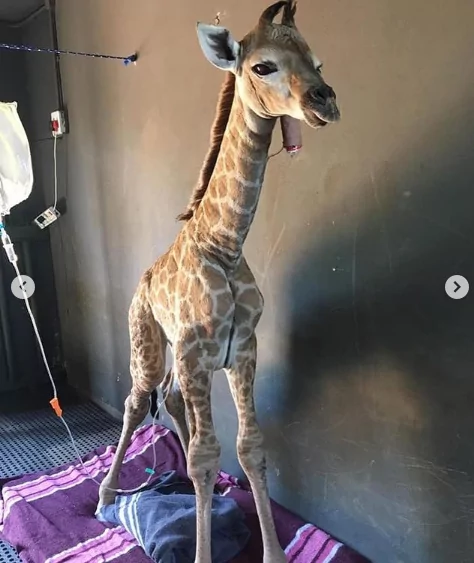
We can only imagine how exciting that must be!
Yes! It is very rewarding, exciting and a lot of fun! There are so many stories. I met this very special lion in Malawi. He had quite an upsetting story. He had been rescued from a European circus, where he had been quite badly mistreated all his life.
He had never seen another lion, had very little access to outdoors and was kept in a tiny little trailer for years on end. He was rescued and kept in a holding area in Belgium while officials tried to figure out what to do with him.
The Born Free organization, based in the UK, stepped forward and worked together with a few other parties to make a plan to fly this lion home to Africa to a beautiful, huge sanctuary, where he can essentially roam free and live out his days, be free from torture, free from pain, and where he rightfully should be.
I had the fortunate luck to be able to work with him for a few hours in Malawi. He was incredibly beautiful. I remember we were changing his pain medication because he had bad osteoarthritis in all of his joints from his years of confinement.
His current pain medication was not really working for him anymore, and he was getting older, so it wasn’t the safest medication that could be used. We decided to swap him over to another one, but in Malawi, the access to medication is a bit limited.
So my friend and I had to go into the human pharmacy and asked the pharmacist (which is normally not a problem) for what we needed. He asked what we needed it for. We said it was for a lion called Simba. I am sure he did not believe us! He asked a lot of questions.
We took the medication, and we darted Simba and did a full exam, took blood, and saw how he was going. We put him on new medication. Afterward, we thanked the pharmacist for what he did for Simba. It was a really special experience to share our professions with each other. It was a really lovely experience.
What is your opinion about zoos and circuses with regards to animals? We suppose you have been to many zoos and probably have an opinion of your own?
Yes, I do! We don’t really have any animals in circuses in Australia anymore. I believe there is a fine line between a circus and what I would call a bad zoo. But you get places that use animals for active entertainment. That is a pretty clear NO! to me. I don’t agree with animals in circuses whatsoever.
I am pro zoo, but I am pro “good” zoo, so an accredited institution. I think that their work is invaluable, and I think the role that they played in society, maybe 50 years ago, was entertainment-based, so we have come a long way for the most part in many countries since then.
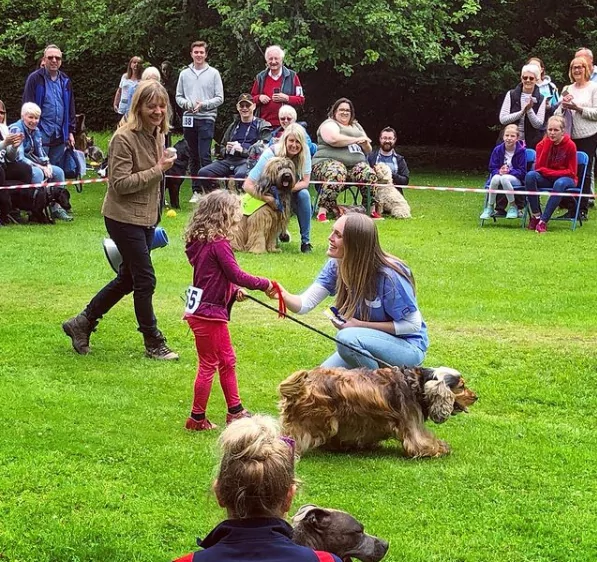
So the role of the zoo used to be for entertainment purposes, and I don’t agree with that. The role of the zoo today is totally integral to conservation as a whole. So the amount of money and funding that they have contributed to in-field projects, their research, their breeding, their treatments of animals (of wildlife that come through their doors), their education of people.
You at least see in the accredited zoos information tablets about why we must maybe try and recycle our phones to help the chimpanzees, why we should check that our palm oil buying is sustainable, rather unsustainable options – all these are reasons that I believe that zoos are a place where people can go and connect with the animals and learn a little bit about their plight and what they are able to do.
And I think you look at the stats and what zoos are able to do for breeding and reintroduction and funding for in-field projects, I think that accredited “good” zoos that meet all of the requirements and have good facilities, good animal welfare, and have all of their procedures in place – I think that they have a really important role.
It’s not to discredit that I believe that every species is suited to captivity. There is no denying that you have to have a few very charismatic species in the zoo to get people to pay the ticket price and visit. For me, that is a grey area, I agree, but I think that we need to work on not trying to have one of every animal that you can in each zoo.
But maybe have a smaller collection with bigger grounds like more of a “free-range” zoo, and just focus on the animals that you do have, and try to be really mindful that every species is going to be suited to that environment.
So you have to really take into account the animal‘s welfare, and are they suffering? You really have to take that into account. I know it is a really contentious topic, people have really, very strong views, and it is ok to disagree with my point of view.
But having been to a lot of zoos, having worked in a lot of zoos, volunteered in zoos, done research with zoos – I have a lot of respect for the work that they do. And by-in-large, the accredited zoos are totally critical to where we are today.
In an ideal world – this would be my last point – there will be no role for zoos. Animals will be out in a field, free-roaming, with no diseases or with no poachers, with no habitat loss, and no pollution. I would love to see that as much as the next person, but that isn’t the case.
In reality, animals are really in danger out in the wild, and we are at a tipping point, and we really need to work towards everything. If you look at Prairie dogs in America, Grey wolves, Bison, and Corroboree Frog in Australia – you can link so many species that would’ve been extinct directly without the work of zoos.
So I think that can’t be discarded. You need to weigh the good against the bad.
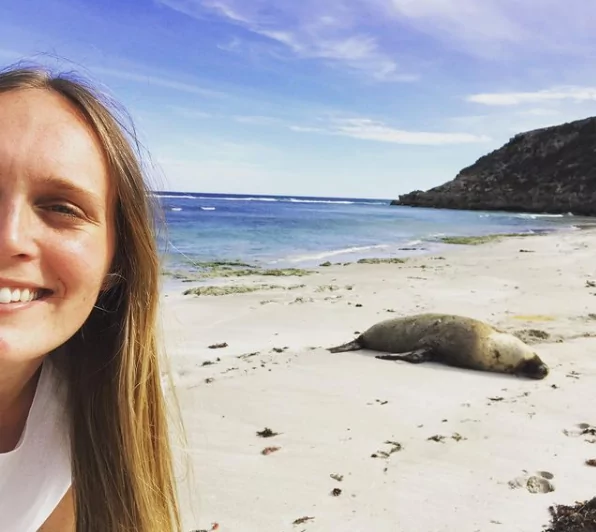
If you could choose two or three zoos that you worked with, which accredited zoos are your favorite that have nice enclosures for animals?
Taronga Zoo – Australia, Auckland Zoo – New Zealand, Los Angeles Zoo – America. These are three of my favorites, and they are really wonderful institutions that do great work and have very high standards
What is the most important thing that you have learned during your career so far?
That is another really great question! I think the most important thing that I’ve learned is that there is still a really lot of good to be found. I get asked a lot of the time as to do I feel helpless, is the cause not helpless, have we gone too far, because everything is a mess, etc.
On certain days I definitely agree with that. The situation is not great what we have here with the natural world and everything that is going on, where greed is dominating good. So that is a challenge, but I have found that at least there is always good out there.
There are good people doing good work, achieving good things, and the more involved you get, you see both sides. So you do see more of the really hard stuff too, which is hard to comprehend, but you also get insight into these incredibly talented, passionate, intelligent people who are dedicating their lives to saving certain environments, certain habitats, certain species that for whatever reason they have chosen to donate themselves to this cause.
I am so inspired by that, and it is definitely working as well. Yes, we have a very high rate of extinction, and that is horrendous, but if you look at individual projects when people put their minds, their resources, and their passion behind it, it is possible to turn things around.
Because just 30 years ago, we thought that the Mountain Gorillas in the Congo, Rwanda, and Uganda were going to be gone by now, but, instead, they are still endangered, but their population is rising for the first time in a really long time. There are over 1000 individuals in the Durango National Park in Burundi, and that is just a really special achievement.
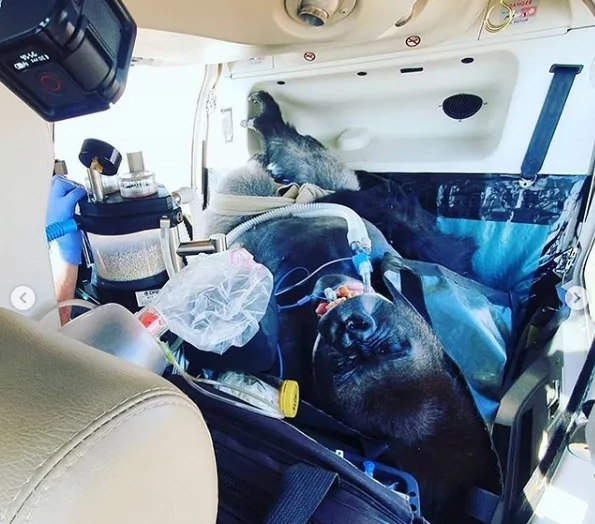
Because people have come together to protect the habitat, to train the local rangers on how to protect the animals, and it is such a testament to them because they are already in a very high-risk area. They are in an area that has been totally battered by civil wars, rebels, and instability for a very long time.
The fact that they can achieve the protection of the gorillas and the thriving population that they have is a real testament to everyone that has come together to do this. The bottom line is that as much sadness and disasters that are out there, there is still a lot of good to be found if you look hard enough.
For people that want to pursue a career in wildlife, I think that is great, and they have great career aspirations, and it’s brilliant. It is such a diverse field that I would recommend to keep your mind open and stay broad with your interests at the start.
In the end, you don’t really want to close doors and find out later that you are really interested in taking a different path later on. I really think that it is just a profession where during your school tenure and your training, you should take as many opportunities as you can and explore as many different fields in veterinary medicine as you can.
Because it is incredibly diverse, and I just see that more and more with every year that passes. So I definitely think that is the biggest one. They say a veterinary career is almost like a passport, and it probably because it is.
Because with this qualification you can really go into so many different fields of work. You can be an advisor, you can be a clinician, you can be an academiary for research, you can be a conservationist, you can work for a non-profit organization and help to raise funds or raise awareness for causes that are particularly important to you, or you can be working in government working on policies.
There are just so many different opportunities for you, and I think that this is a really amazing thing and that it is potentially a path less trodden. But that doesn’t make it any less of a path; I think it is just about surrounding yourself with people who share similar interests or reaching out to people whose careers you are interested in or who you admire.
Try to see if they might be free for half an hour for a talk, so you might be able to pick their brain, or just to be able to shadow them or anything like that. So just reach out, and use your early career and your early studies to experiment and explore, and you might be surprised where it takes you!
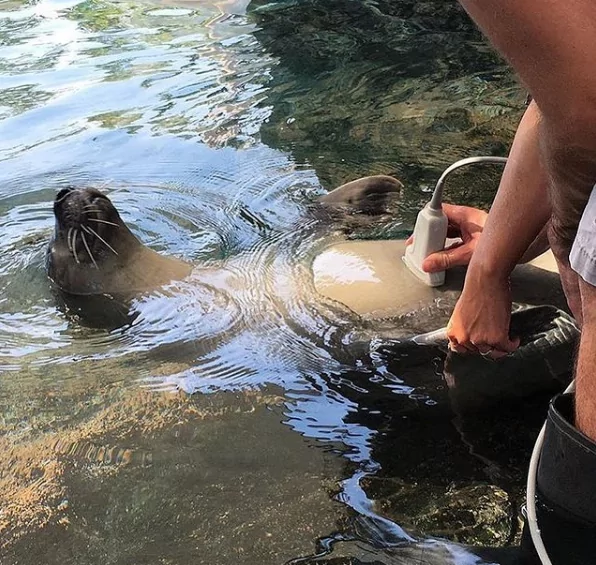
We have a question pertaining to one of your latest posts on Instagram. You posted about women in veterinary medicine. The profession mainly consists of women; however, the respect that they get and how people interact with them are completely different. Do you have anything to add about that?
I think that I would say that it is disappointing, yet not unexpected. It does not just happen in veterinary medicine, so women being treated differently, for the pure sake of being women, happens in every single profession, in every single country around the world.
I don’t know of a single woman who has not had some form of discrimination against her, be it pay, be it comments, be it their ability or their perceived ability by clients, or by coworkers. So, I do find it incredibly disappointing in veterinary medicine.
With veterinary medicine, I would say again, not unsurprising, but again from someone outside looking in, I guess it could be considered a bit surprising because these days with professions, the vast majority is made up of women.
So it is still a bit mind-boggling to me that this continues to happen, even in a female-dominated profession. But I think that the tide is turning, and social media is actually a really good thing. Again, it really has to be weighed out with the goods and the bads.
You can use it for good in terms of rallying together, spreading a message, backing each other up, and finding people online that shares your interests and your profession, and you can feel comfortable with them, and sort of propagate that message in a much more powerful way than what people were able to do 50 years ago.
I was really humbled to see women, in particular, responding to this paper over the past week. It was incredible—just the power of social media and the ability for people to speak up. The paper has retracted, which is wonderful.
The fact that the paper was even published in the first place is the problem. Nonetheless, I think if we use our voices, we can actually make a change, and we definitely should, since we are a female-dominated world and it is a wonderful profession.
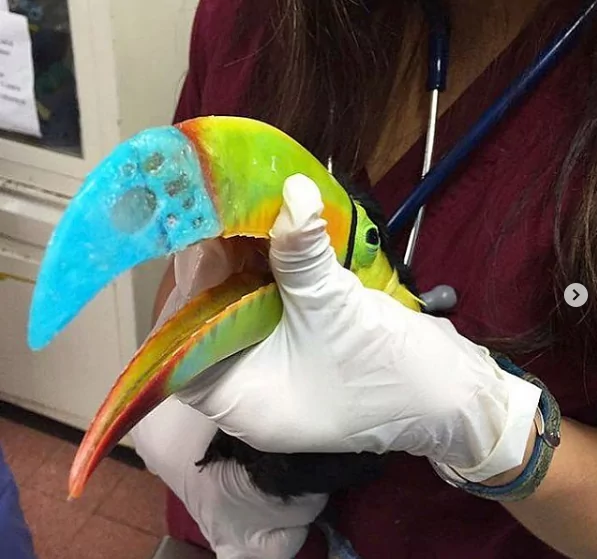
Yes, it was pretty bad! I was surprised at how the paper even got approved in the first place. It has to go through ethics and peer review, and panels.
What is the next project that you are planning to work on? And, do you have anything else that you would like to add?
I have a few projects on the go that I am excited about. The first one being that I have a book that is in the process of being published. The release date is on the 4th of May 2021, and it is about my experiences in the field in the wildlife as a wildlife vet and how people can get themselves involved in different things pertaining to that, and that is really exciting for me.
The other thing would be my partnership with Loop Abroad, which is something that I am really passionate about because, essentially, Loop Abroad is a company that helps students who want to study abroad and that are interested in wildlife conservation, veterinary medicine, and also other fields.
They take them into the different fields and into the different countries to learn about it, and I did a few similar programs myself throughout High School and my Undergraduate Degree. I believe that they really set me on the path.
So that is something that I am really passionate about. I love teaching and sharing my love of the natural world with people who are in my shoes, where I was ten years ago.
I am also working on a few different scholarships at the moment to help small-scale conservation organizations, which is also exciting, and I am also working on scholarships for students because it is a challenging field to get into.
Often, there is a lot of unpaid work required in the beginning prior to your degree, which can be quite prickling and only allows for a small subset of people to enter this field. Whereas I think it is a real problem for the field of conservation, and you don’t just want to select people who are able to work for free for years while they are getting their degree going.
So, that is something that I think I can’t tackle at the moment, but it is something that I am really conscious of, and working on establishing small scholarships to start off with and then trying to change the tide of who essentially makes it in this field.
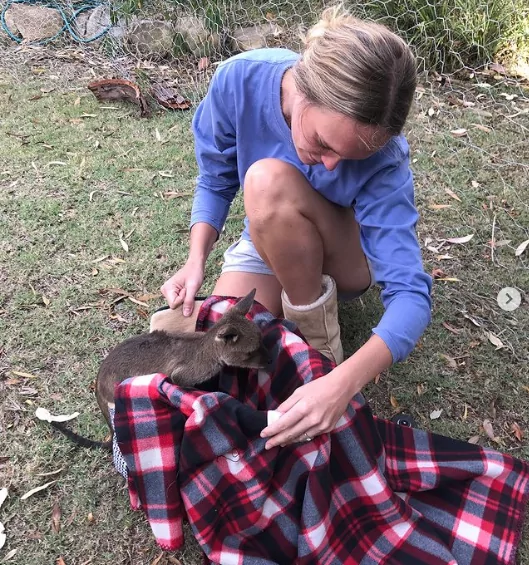
A few other things in the works have been placed on hold due to Covid. Obviously, I am not able to be in the field at the moment myself. So I have been doing a few things online, such as hosting courses that we would’ve had in the field, by doing them online instead, which is just a different learning experience, but definitely a viable one nonetheless.
Those are the main things I would say, and hoping for a better 2021 and things being able to return to normal for all of us would be really wonderful, because it has been a really difficult time for animals.
At the moment, people have found the time to strike with a range of different things, be it bulldozing large sections of forest, or pushing through legislation while people’s attention is elsewhere, or just taking advantage of the lack of tourists and rangers in certain national parks.
They have been using it as a time to strike the parks with regard to poaching. So it is a challenging time, and I really need to get back into the field. I am really looking forward to some exciting projects in the works, but at least it has given me a chance to finish the book and get that published. So it is really very exciting!
I hope that the proceeds from the book will be able to go to some really important causes that are close to my heart. Hopefully, it will be just a little contribution from me, and it has been a really fun experience. I would definitely say that it’s had its moments.
We do believe that will be a very nice read! We are looking forward to reading it. We think it will be really interesting to read about your experiences as a wildlife vet. Is there anything else that you would like to add?
No,l think that is it. I’ve really enjoyed chatting with you, and I am flattered that you wanted to chat with me. Thank you so much for the opportunity and for your time
Chloe, thank you so much for your time and the great chat!
You can order Chloe’s book: The Jungle Doctor: The Adventures of an International Wildlife Vet through Amazon now.

